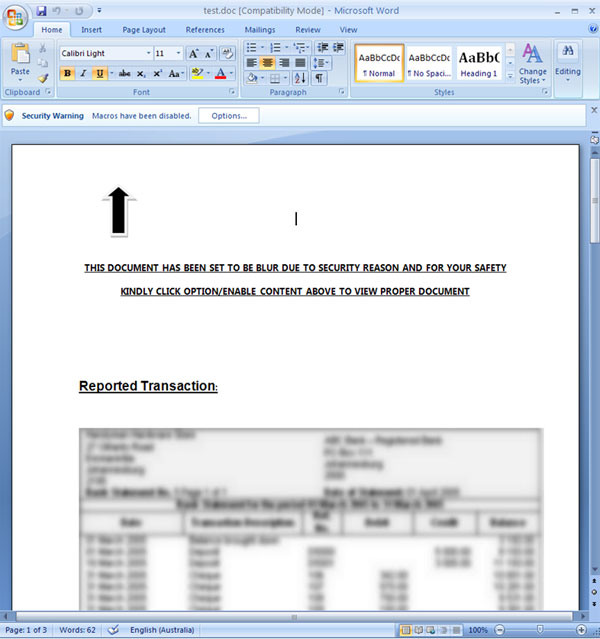For most people, the biggest security threat is that of themselves doing something they shouldn’t do.
Last week,
Microsoft
wrote
about the return of macro malware where, now that macros have long been disabled by default, social engineering is used to trick the user into enabling them.
Although it was interesting to read
Microsoft
‘s perspective, this isn’t news. Last year, we published a
paper
by
Sophos
researcher Gabor Szappanos on the resurgence of malicious VBA macros. Since then, macro malware has become even more prevalent; recently, it was used to download
Bartalex
,
Dridex
and
Dyre
onto victims’ machines.

Preventing macro malware from infecting your machine is really simple: don’t enable macros, no matter how much a document urges you to do so.
Macro malware stands in sharp contrast to so-called ‘advanced attacks’ by determined threat actors, often sponsored by nation states. Many security experts, myself included, think such threats are a major concern.
Existing technologies might not be good enough to fend off such attacks, so we are commonly told (especially by those who happen to sell technology that would provide sufficient protection). Putting a natural scepticism about technology that might promise too much aside, the fact that attackers have upped their game means we should indeed reconsider whether our existing defences are sufficient.
But in criticising such defences we shouldn’t forget that, for most users, the biggest risk is that of themselves doing something they shouldn’t do — whether that’s enabling macros or, as with the ILOVEYOU worm that started to spread 15 years ago today, opening email attachments.
All Internet users should include advanced actors in their threat models. But for most users the threat of such actors is mostly existential; for them, the biggest danger in their threat model is themselves. A lot of existing technology actually does a pretty good job of protecting these users, even if on their own they might not be fair game for the rarer, but scarier, more advanced attackers.
Posted on 05 May 2015 by
Martijn Grooten
Leave a Reply